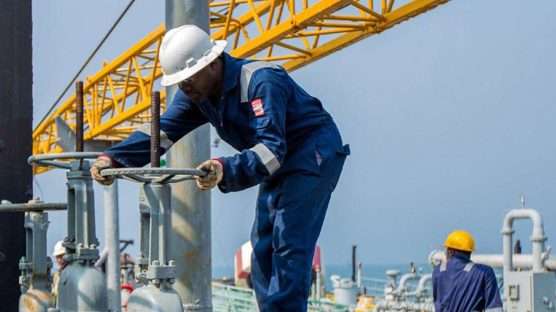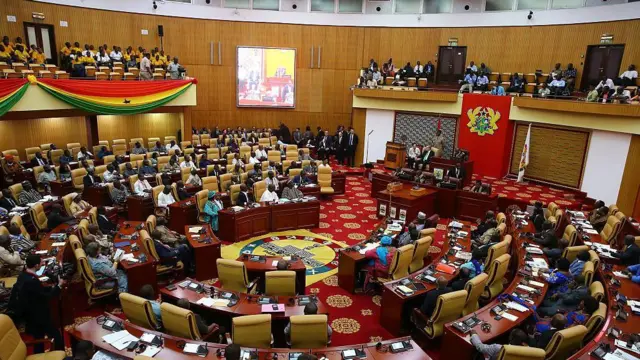Nigeria, Africa’s largest oil producer, is grappling with a significant decline in active oil rigs, presenting a serious obstacle to the federal government’s goal of reaching a daily crude oil output of 2 million barrels per day (bpd) by December 2024.
This development raises concerns about the country’s ability to boost its oil production amidst an already volatile global oil market.
“Nigeria, a previously bright spot-on big oil and gas investors’ radar screens, has dimmed significantly as investor attention is increasingly drawn to new and emerging developments in Namibia, Ivory Coast, Angola, and the Republic of Congo.”
NJ Ayuk, Executive Chairperson of the African Energy Chamber
According to the November 2024 Monthly Oil Market Report by the Organisation of Petroleum Exporting Countries (OPEC), Nigeria’s functional oil drilling rigs declined to just 11 in October, representing a 27 percent year-to-date decrease.
This decline comes after the country operated an average of 17 rigs in the first and second quarters of 2024 and 14 rigs in the third quarter. The reduction highlights dwindling exploration and production activities, with significant implications for the Nigerian economy.
Oil rigs are critical infrastructure for petroleum exploration and production. These platforms house facilities for extracting and processing oil and natural gas from beneath the seabed.
The number of active rigs is often a barometer for the health of a country’s oil and gas industry, reflecting the level of investment and production activities.
For Nigeria, where oil accounts for more than two-thirds of government revenue, the declining rig count could exacerbate economic challenges.
Active oil exploration and production are essential for attracting investment and generating revenue to fund national development projects.
The National Bureau of Statistics (NBS) reported a dramatic decline in foreign capital investments in Nigeria’s petroleum industry, which fell from $720 million in 2016 to just $3.64 million in 2023.
The downward trend continued into 2024, with the sector receiving no share of the $3.38 billion in total capital imports during the first quarter.
This collapse in investment is partly attributed to concerns over operational inefficiencies, security challenges, and policy uncertainties in Nigeria’s oil sector.
These issues have prompted investors to divert their capital to other emerging oil markets in Africa, further jeopardizing Nigeria’s production goals.
Federal Government’s Ambitious Production Target

Despite these challenges, the Nigerian government remains optimistic about increasing crude oil production.
Heineken Lokpobiri, Minister of State for Petroleum (Oil), reaffirmed the government’s commitment to achieving the 2 million bpd production target by December 2024, describing it as “the shortest way for us to get out of our current economic problems.”
The Nigerian National Petroleum Company Limited (NNPC) has reported progress toward this goal, with crude oil and gas production rising to 1.8 million bpd and 7.4 billion standard cubic feet per day (scfd), respectively, as of November 2024.
Mele Kyari, Group Chief Executive Officer of the NNPC, commended efforts to recover and escalate production levels, stating, “The team has done a great job in driving this project of not just production recovery but also escalating production to expected levels.”
OPEC’s report indicated a slight increase in Nigeria’s crude oil production in October, with average output rising by 35,000 bpd to 1.434 million bpd. This marks an improvement from the 1.399 million bpd recorded in September, based on secondary sources.
However, direct communication from Nigerian authorities pegged the October average at 1.333 million bpd, reflecting a marginal increase of 9,000 bpd from the previous month.
While these gains suggest some progress, they remain insufficient to meet the 2 million bpd target within the next month. Experts warn that the declining rig count could further hinder efforts to scale up production.
The 27 percent drop in Nigeria’s active oil rigs underscores the daunting challenges facing Africa’s largest oil producer.
While the government’s 2 million bpd target is ambitious, achieving it will require addressing fundamental issues in the oil sector, including declining investments, operational inefficiencies, and security concerns.
As competition from other African oil-producing nations intensifies, Nigeria must act decisively to restore investor confidence and revitalize its oil industry.
Failure to do so could have far-reaching consequences for the country’s economy and its standing as a leading oil producer on the continent.
READ ALSO: COP16 Targets Global Land Crisis, Urges Immediate Action




















